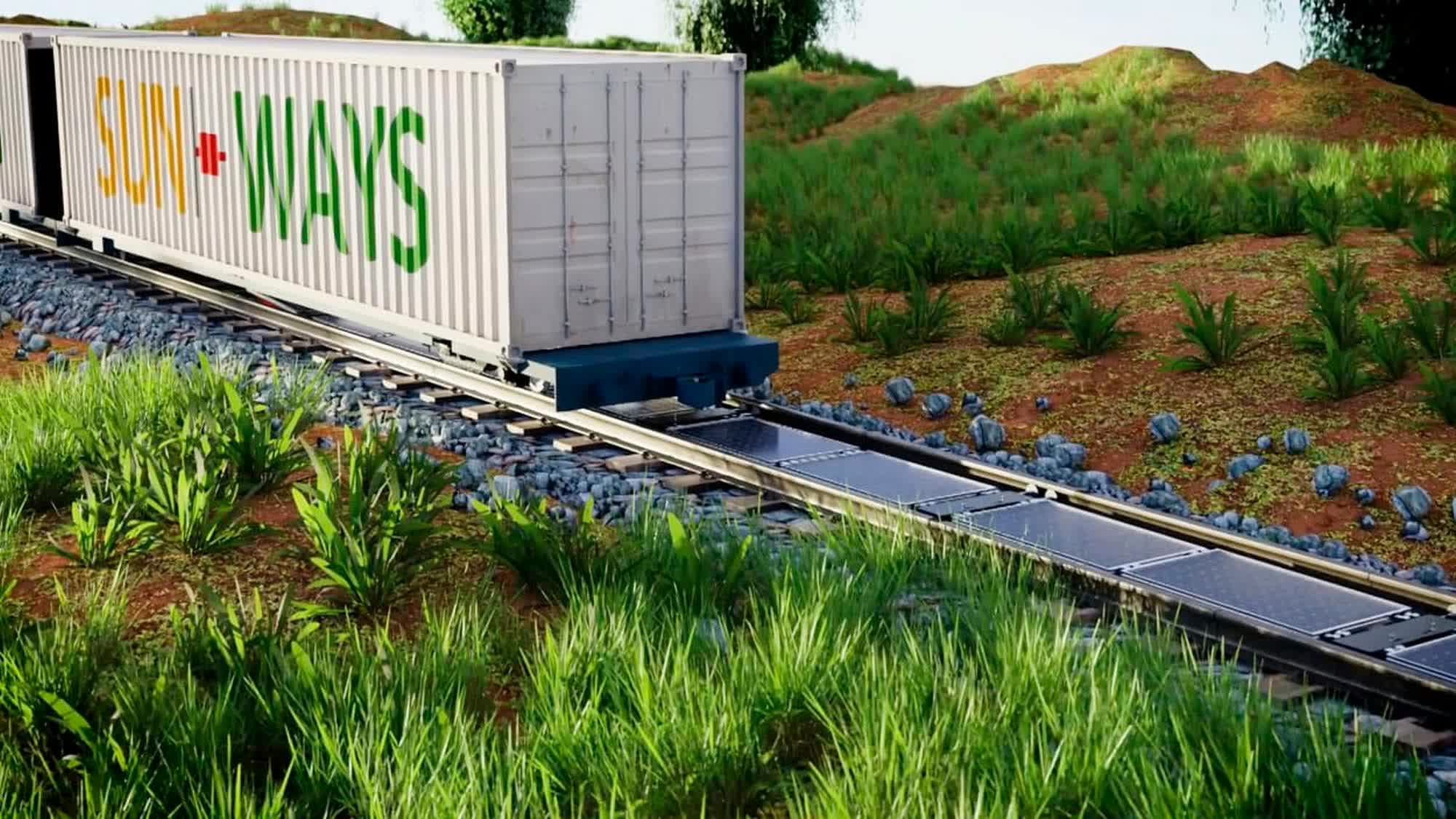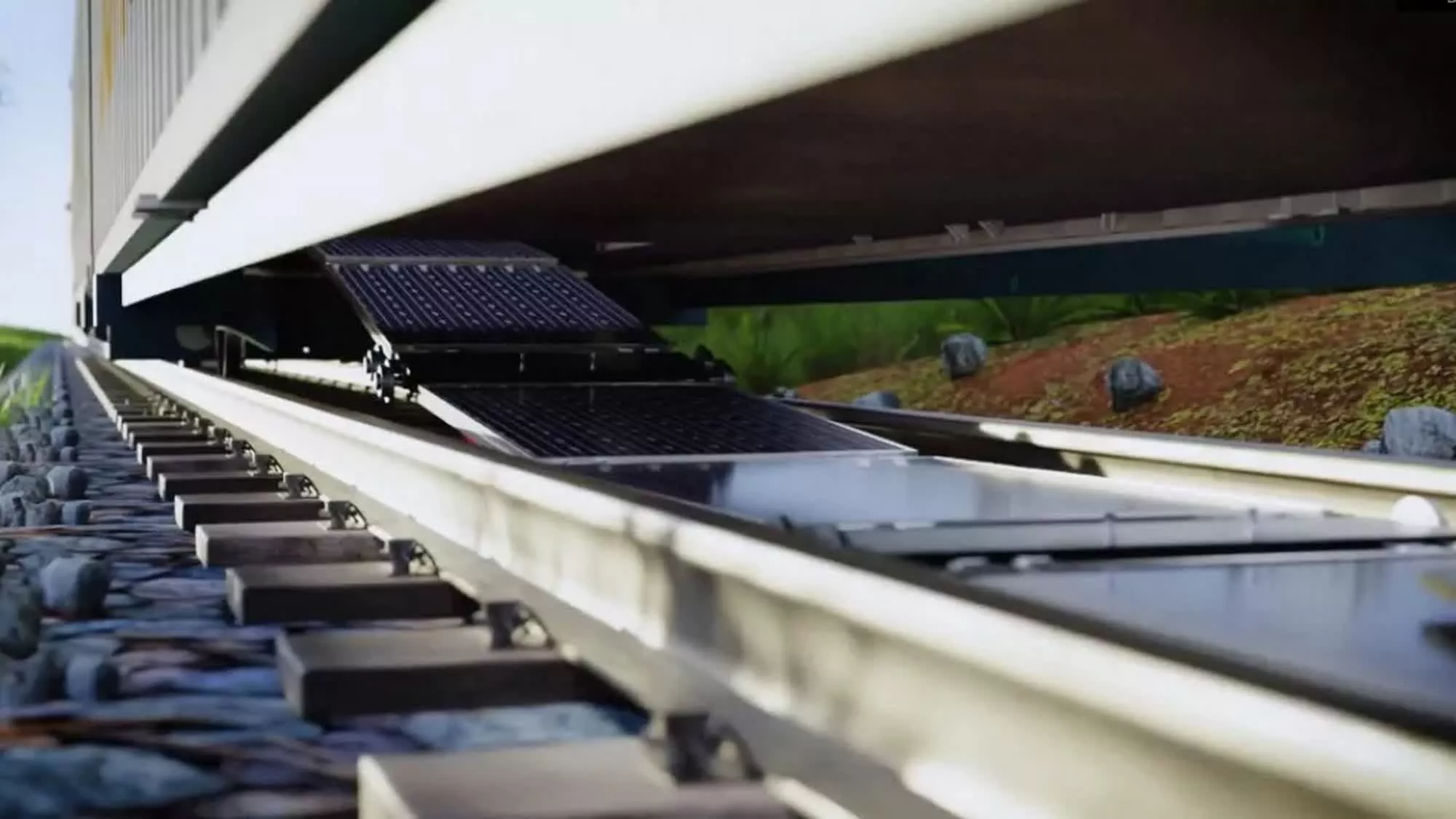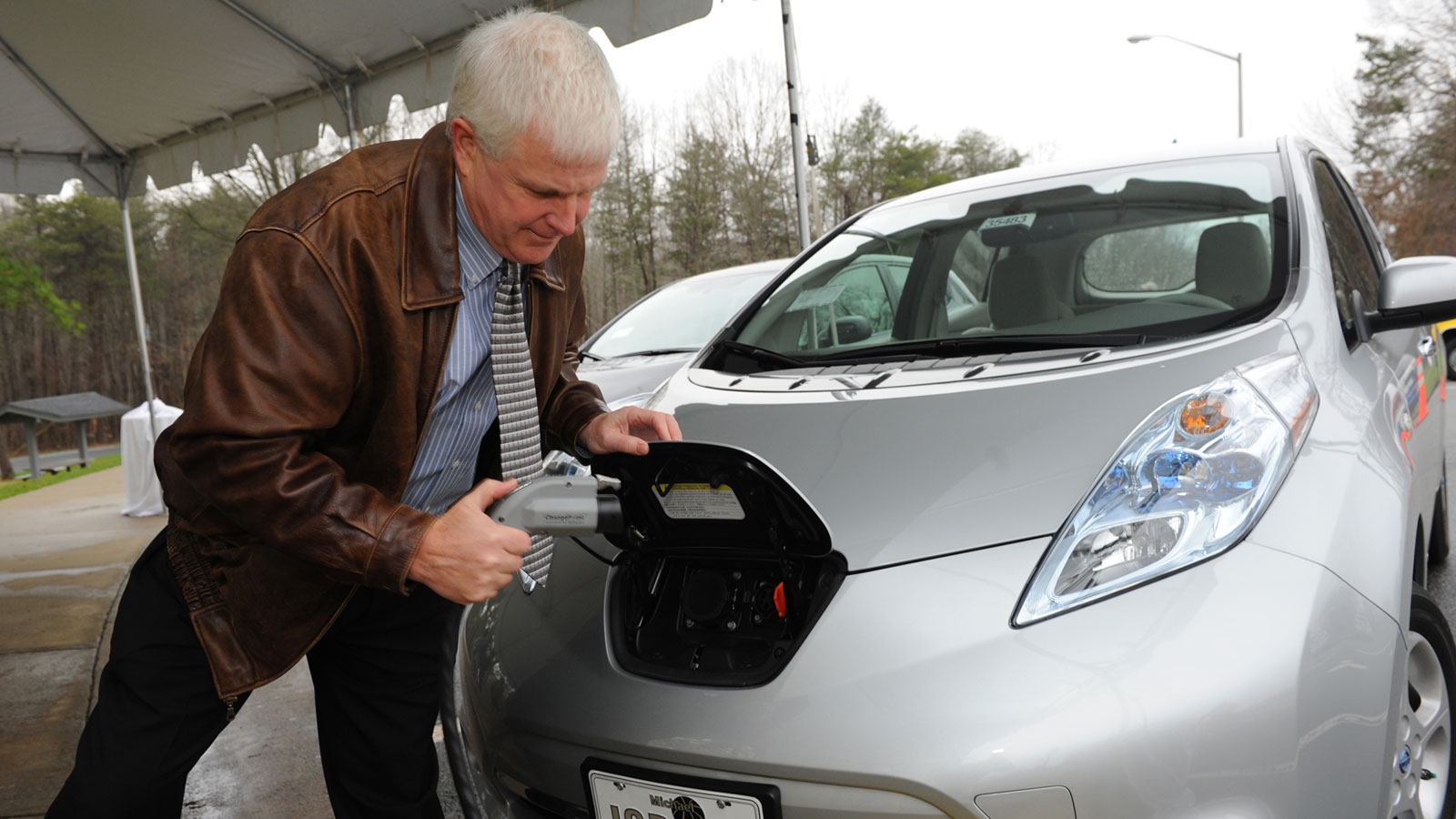What just happened? Swiss startup Sun-Ways is installing solar panels on railway tracks in Switzerland. The panels are reportedly being rolled out 'like a carpet' in the gap between the tracks near the Buttes train station following the go-ahead from the country's Federal Office of Transport.

Interestingly, Sun-Ways isn't the first company to have started rolling out solar panels on railway tracks. As reported by Fast Company, Italian renewable energy company Greenrail and British tech firm Bankset Energy are also working on similar technologies, although the experiment in Switzerland is notable for two reasons.
First, Sun-Ways is using standard-sized panels, while the other two companies have been using smaller panels to fit them between the railway tracks. Second, the entire panel-laying process has been automated by Sun-Ways, whereby a specially-built train is 'unrolling' the panels on the tracks rather than human workers doing it manually.

The pilot project, which is expected to be completed this summer at a cost of $560,000, will see Sun-Ways use a regular train to lay down 60 solar panels on a 140-foot stretch of railway track near the city of Neuchâtel. That's not much, but it's a start, and one that can potentially lead to bigger and better things in the years to come.
To start off, 100 percent of the electricity generated by the project will power local households, but in the future, some of the power could be used to run the trains. According to Sun-Ways co-founder Baptiste Danichert, covering the entire 5,000km of the Swiss railroad network with solar panels could generate up to 1 gigawatt of energy per year, which is enough to power around 750,000 homes.
For the pilot program, Sun-Ways is using a regular train retrofitted with special tools to lay the panels. In the future, the company plans to use a custom train with two carriages – one to store the panels and another to install them. The panels are expected to stay on the tracks unless they need maintenance or repair. In that case, the same train will once again run on that stretch of the track to uninstall them.
While most environmentalists are happy with the increased adoption of renewable energy, some are reacting to the development more cautiously. According to Bill Nussey, the founder of the clean energy advocacy group Freeing Energy Project, the experiment will only be a success if it can "overcome a number of big challenges, including debris from trains, the geographic distance between panels and the point of interconnect to the grid."
/cloudfront-us-east-2.images.arcpublishing.com/reuters/H2KEA5EE2NJN7JOPITYRXJLBIQ.jpg)

